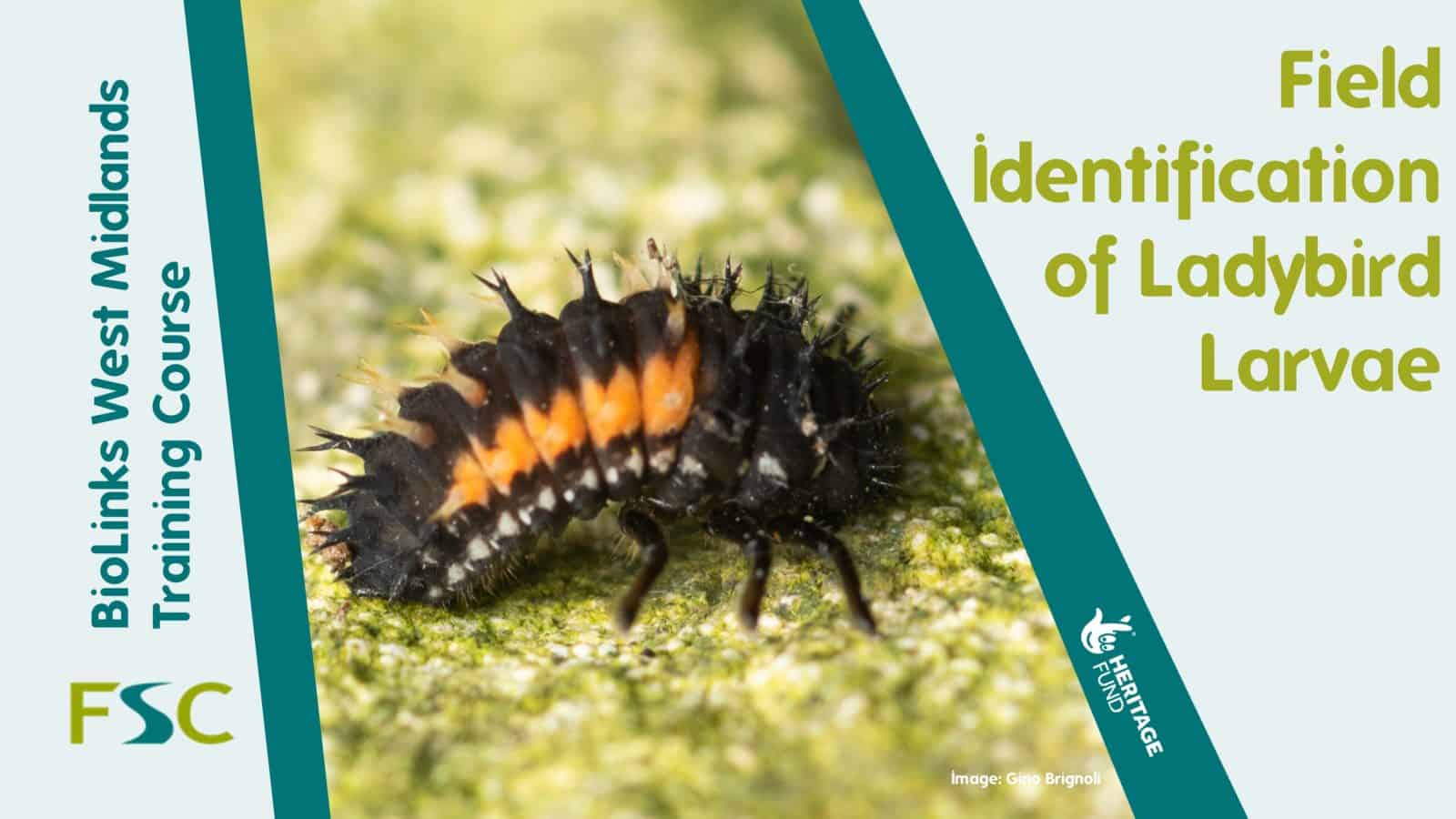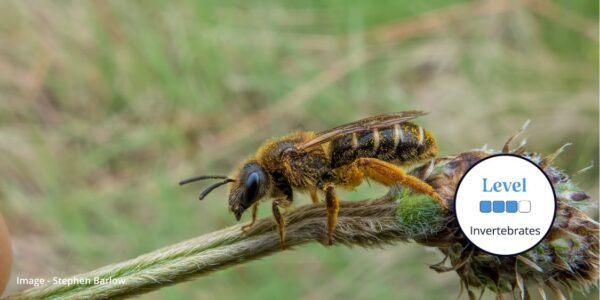In the UK there are 46 species of ladybird- with 26 species being classified as conspicuous and 20 species being classified as inconspicuous. Ladybirds have an interesting life cycle, beginning from an egg. Adults lay eggs which then hatch into larvae (which look nothing like ladybirds). Larvae go through four growth stages before pupating. After spending several days as pupa, they emerge as adults. Ladybird larvae are often over-looked in biological recording, but they are common and relatively easy to find and identify. This course will provide you with the skills you need to be able to start identifying ladybird larvae to species in the field.
This course marries together the use of classroom-led learning and outside learning opportunities led by an expert tutor to give learners the skills to be able to identify distinctive species of ladybird larvae in the field.
- Certificate upon course completion.
- Please email [email protected] if you have any questions.
- This course is limited to the identification of distinctive species that can be identified in the field.
This course is aimed at adults only and course attendees must be at least 18 years old in order to attend.
What will be covered during this course?
- An introduction to ladybird classification and how their morphology and ecology are interconnected.
- Identification of distinctive species of ladybird larvae using a hand lens and field characters.
- Support from an expert tutor when practicing field identification techniques.
- Guidance on how to submit records.
See the ‘Example Timetable’, ‘What’s Included’ and ‘Before You Attend’ sections below for more information about this course.
Course Fees
Regular Price: £75 For professionals and residents outside of the UK. Select ‘Attendee: In Person’ Sold Out
Subsidised Price: £10 Subsidised by the FSC BioLinks project for non-professionals eg. volunteers, biological recorders, wildlife gardeners, amateur naturalists and students. Available to UK residents only. Select ‘Attendee Subsidised: In Person’
Tutor: Richard Comont
Richard is a naturalist, entomologist and enthusiastic biological recorder. He specialises in many invertebrate groups. His PhD examined the impact of the alien invasive Harlequin ladybird on native species and he now works for the Bumblebee Conservation Trust leading their science programme. In 2016 he won the Gilbert White Award for terrestrial and freshwater biological recording. He also spends his time writing about wildlife, his books include the Naturalists’ Handbook to Ladybirds; Bumblebees, An Introduction; Spotlight Bumblebees; and The Nature of Malvern. He is currently working on a field guide covering the non-insect invertebrates of Britain.
Covid Measures
In order to keep our customers and staff safe we ask that anyone attending our centres:
- wears a face covering when in shared indoor space (unless exempt).
- maintains social distancing.
- cleans their hands regularly.
- takes a Covid-19 test before they arrive.
Example Timetable
- Please arrive in time for the course to start promptly at 10:00 am.
- Refreshments will be available from 9.45 am.
- The course will end at 4:00 pm.
What's Included
- 6 hours of tuition.
- Certificate of attendance.
- Access to identification resources.
Bursaries and Subsidies
FSC BioLinks
FSC BioLinks is an exciting project for FSC in the South East and West Midlands, bringing together existing volunteers with skills in biological recording and identification, and new volunteers.
This project provides subsidised training courses, learning opportunities and digital tools focussed on invertebrate identification for anyone involved or interested in biological recording, to build and strengthen the community.
Invertebrates provide us with many useful ecosystem services, like pollination and decomposition, which we cannot survive without but their numbers are declining. Few people know how to identify or record invertebrates meaning there is a lack of data.
We are delighted to have been awarded a grant of £1.23 million from the National Lottery Heritage Fund for this project.
Before You Attend
Getting to FSC Bishops Wood
FSC Bishops Wood, Crossway Green, Stourport-on-Severn DY13 9SE
- By car from Kidderminster: (M5, A38, A449 southbound) On the M5 heading southbound coming off at junction 5, taking the third exit on the roundabout to get onto the A38. at the first roundabout take the third exit onto Kidderminster Road going straight over the next roundabout sticking to Kidderminster Road. At the second left turn to follow Doverdale Lane. Once you have come to a sign turning right onto the A449 take it until you get to the Mitre Oak pub on your left. Take the first exit on the roundabout onto Bishops Wood Lane, finally taking the first left on you will arrive at Bishops Wood Field Centre.
- By car from Worcester: (M5, A449 northbound) On the M5 heading northbound, take Junction 6 to Worcester/ Kidderminster taking the second exit heading for the A449 northbound, continuing for 9 miles. At the roundabout with the Mitre Oak pub take the first exit onto Stourport Road. Take the first left onto Bishops Wood Lane, finally taking the first left on you will arrive at Bishops Wood Field Centre.
- By train: The nearest station to the centre is Hartlebury. From here, it is a two-mile walk to FSC Bishops Wood, or a short taxi ride.
What to bring
- Notebook and pencil
- Lunch
- A hand lens (equipment will be provided for those that need it)
Please wear suitable clothing for the weather (such as waterproofs) and suitable footwear (walking boots or wellies) as we will be out on site during the afternoon.
Please note that this course will involve using specimens that have been killed and preserved.
There will be a member of staff with first aid training and access to a first aid kit on site. If you have special medical requirements please let us know as soon as possible so we can plan the course.
Sorry this course has ended


